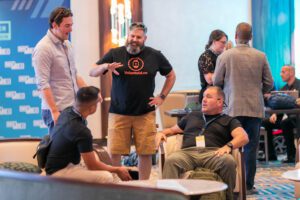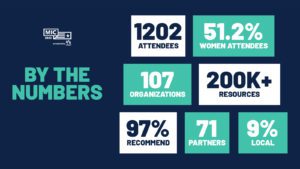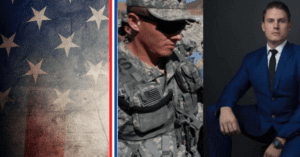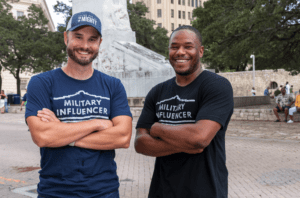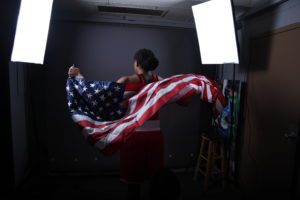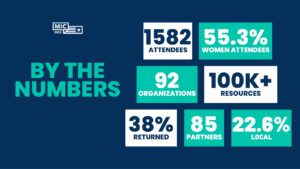
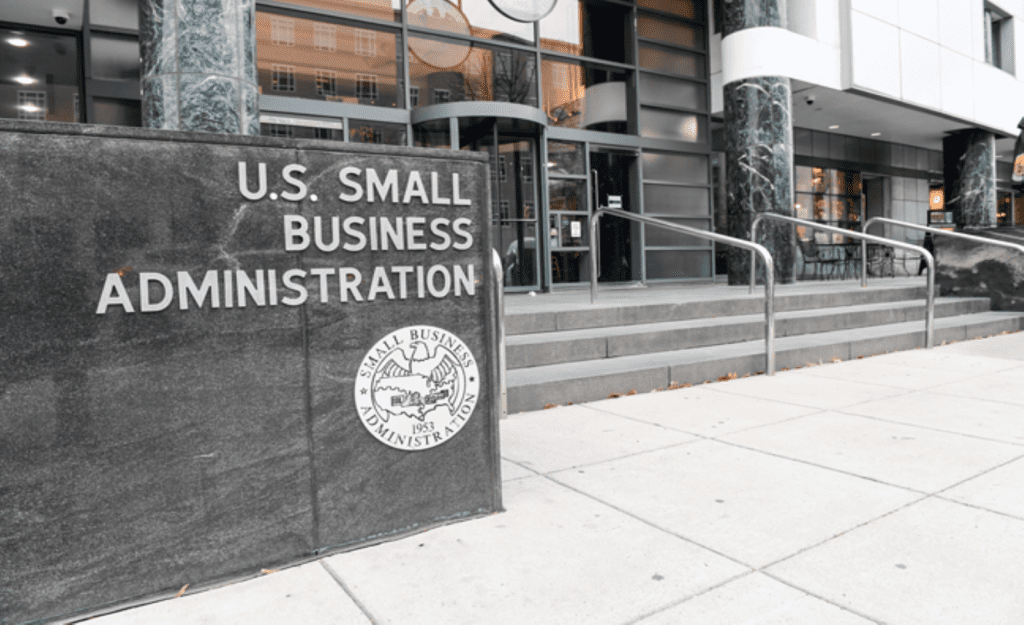
SBA programs aid veterans with business pivots during pandemic
- by
- Bianca M. Strzalkowski
Navy veteran Stewart Junge and his wife, Deanna, own Landmark Finish — a family-operated business that creates residential custom cabinetry, laminate countertops, retail fixtures and more. When the market crashed more than a decade ago, the Junges said they experienced a “period of struggle” that led them to pivot their business from high-end residential cabinetry to commercial work. So, when the pandemic struck earlier this year, Stewart says he knew early on that they would need to adapt immediately.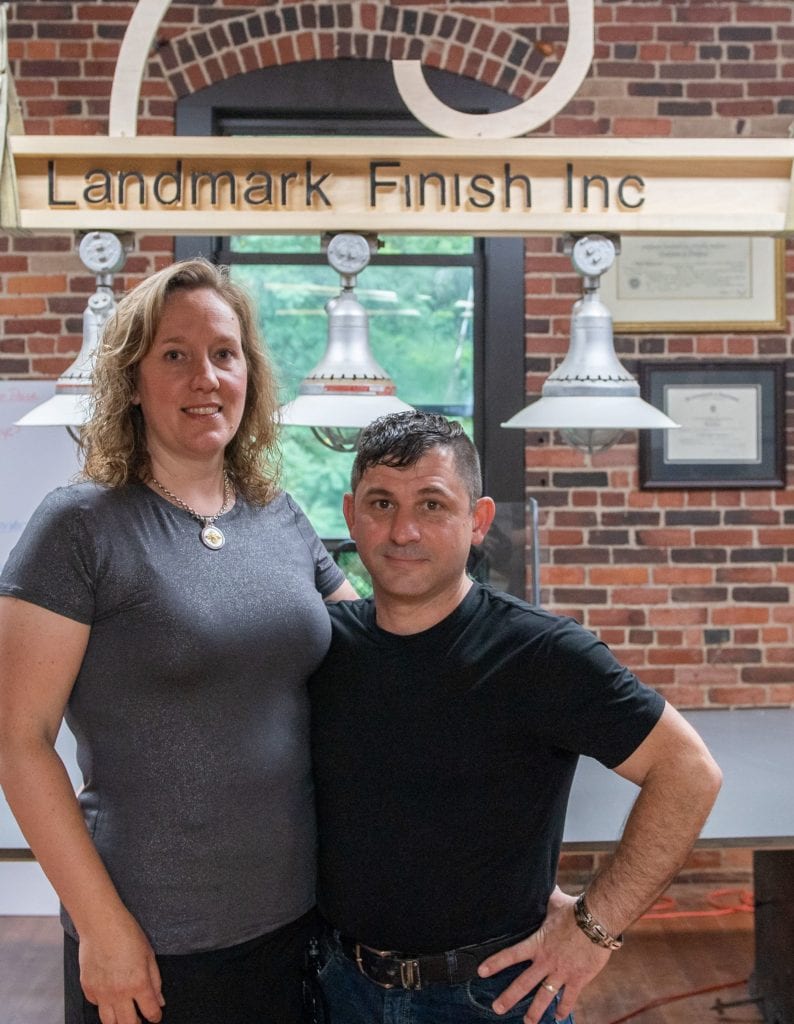
“It was very quick for me because the shop was empty, we had a number of jobs in queue that I had to finish myself, the employees were gone and I had a lot of time for soul searching and reflecting back to 2008. I didn’t want to be in the 2008 situation again. I was looking around the shop to brainstorm, what can I do with what I have to get out of this situation,” Stewart said.
And the realization that things were changing again was not easy. The couple’s business was flourishing, which included plans to expand operations.
“We were in the process of really doing a lot of business development, we were about to graduate from the VETRN Streetwise MBA program, and we had this grand plan of making a showroom in our building — so we have about a 2,200 square foot area that we were renovating. The idea was to not only make it a showroom for our cabinetry, but we were going to make it a local design center where contractors and interior designers north of Boston could come and use it as a resource center for their own clients and use it as a meeting space,” Deanna said. “Fortunately, I would say, we were not strangers to seeing some of the telltale signs that work was going to dry up, or change, and that we had to switch gears in order to not only survive, but really thrive this time.”
Resources from six months of training through the Streetwise MBA program put the Junges at an advantage when the time came to figure out next steps. The free tuition program includes information on strategic business planning, business cash flow, financial management and understanding market segment.
The husband-and-wife duo both said leaning on a network of other entrepreneurs, and mentors, is among the most helpful tools that has helped them.
“Try and connect with other people. One of the more powerful things that we’ve had was the connections, the sharing experiences, and realizing we’re not the only fish in the swamp,” Stewart said
The U.S. Small Business Administration (SBA) helps connect entrepreneurs, like the Junges, with a network of volunteer, expert business mentors through SCORE — a nonprofit organization dedicated to helping small businesses get off the ground, grow and achieve their goals through education and mentorship, according to its website. Click here to locate a local mentor: https://www.score.org/find-mentor.
Larry Stubblefield, Associate Administrator for the Office of Veterans Business Development at the SBA, strongly encourages veteran entrepreneurs to utilize the programs and resources of his office before trying anything else. Stubblefield and his team are responsible for formulating, implementing, administering, and promoting policies and programs that equip veterans, service members, and military spouse-owned small businesses with counseling and education, access to capital, and contracting opportunities.
He also has firsthand military experience, retiring after 30 years as an enlisted soldier and active-duty officer in the Army.
“The message [of this year’s National Veterans Small Business Week] was come to the SBA before you go out and try whatever you’re going to try alone. A lot of times we’ll find veterans will establish a business or try to grow their business, and we have resources that can help them do that — to include helping them with contracting opportunities, access to capital, business training, mentorship, and so forth,” Stubblefield said.
Top SBA programs Larry Stubblefield recommends:
Boots to Business is a two-day, eight-module workshop for transitioning service members and military spouses that is a basic overview of entrepreneurship.
Link: https://sbavets.force.com/s/
Veteran Outreach Business Centers are one-stop shops around the U.S. providing business training, mentorship, and resource referrals. It also focuses on getting the attendee “lender ready.”
Link: https://www.sba.gov/page/veterans-business-outreach-center-vboc-program
Business mentors exist across thousands of locations, “leaning forward in the foxhole” ready to help, Stubblefield says, and he advises veterans leverage the experience of those looking to help.
“The SCORE mentors are former business owners, executives … they are someone who can sit down with you because they’ve crossed all the hurdles,” he said.
Stubblefield added that the SBA exists to guide entrepreneurs through the business cycle, and the Stewarts are an example of how these resources can help entrepreneurs adapt what they have to current challenges.
“We’ve had quite a few success stories of business owners who found, regardless of what’s going on, there’s always an opportunity. [Landmark Finish] basically was into furniture and cabinet making and they pivoted to making protective shields for offices and universities and businesses. They’re sailing right along and their orders are off the charts,” he said.
The SBA conducted a series of listening sessions at the height of the pandemic where it came to light that broadband connectivity and access to capital are the current top challenges of business owners. SBA has a section of its website devoted to programs for the latter problem at https://www.sba.gov/funding-programs.
YOU MAY ALSO LIKE
MIC Updates
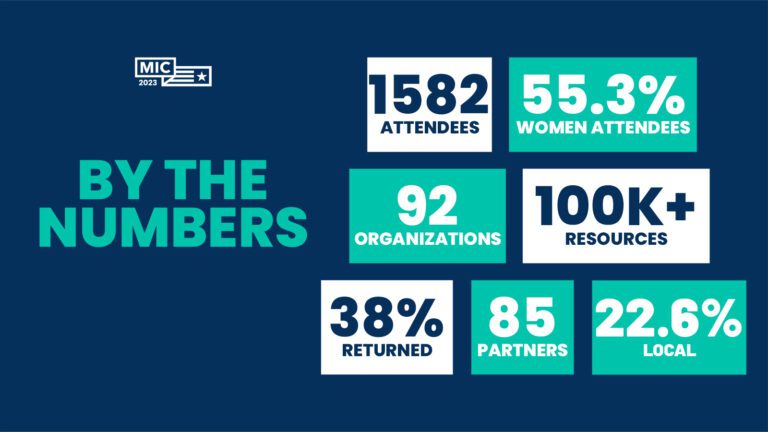
Behind The Numbers Of MIC 2023



